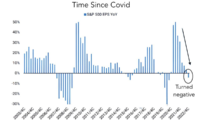IMF Warns Argentina of Ad-Hoc FX Rates Amid 100% Inflation
(Bloomberg) — The International Monetary Fund is urging Argentina against unconventional currency measures such as creating multiple exchange rates at a time when inflation is expected to reach 100% by the end of this year.
Most Read from Bloomberg
IMF Western Hemisphere Director Ilan Goldfajn cautioned Argentine officials against “different FX measures or prices or things like that.”
“We continue to believe that this is the way forward not to have ad-hoc and separate measures,” Goldfajn told Bloomberg News in an interview on the sidelines of the IMF’s annual meetings in Washington. “If you have them, you should do it in a temporary basis and unwind them going forward.”
His comments come days after Argentina moved forward with new taxes applied to the official exchange rate for tourism abroad and some music concerts, piling onto a long list of informal exchange rates.
Read more: Argentina Spawns FX Rates in Desperate Move to Avoid Devaluation
While Argentine officials don’t believe the new measures violate the program, Goldfajn is the second IMF official after Managing Director Kristalina Georgieva last week to push against the government’s currency strategy.
The IMF board approved a waiver for Argentina’s program last week for its “multiple currency practices,” after the government invented a new exchange rate just for soybean exporters in September. The waiver was approved because the exchange rate was temporary.
Goldfajn also conceded that Argentina’s inflation outlook has worsened since the $44 billion program began in March. Economists surveyed by the central bank in September see inflation reaching 100% by the end of this year.
The fact that inflation expectations have “reached 100% is an issue that was not envisioned at the beginning,” Goldfajn said. On the program, “we believe that if it’s well implemented, we would like inflation to start to go down.”
Argentina’s dollar bonds have slumped to near-record lows around 20 cents on the dollar, and investors have been reluctant to bid up the notes despite the government’s progress in meeting targets under the IMF program. The nation’s $16.1 billion in bonds due in 2030 edged up 0.1 cent on Friday to 20.1 cents on the dollar.
Goldfajn said that his focus with Ecuador, another multi-billion-dollar IMF borrower in Latin America, is on implementing the nation’s current loan program rather than negotiating a new one, something that President Guillermo Lasso has indicated he’s interested in doing next year.
Asked about El Salvador, Goldfajn said that the nation is far from negotiating a program with the IMF based on fiscal, governance and Bitcoin issues that are “quite challenging at the moment.”
Other comments from Goldfajn:
IMF staff reviews on Argentina
-
“There’s also some forward looking in this review. We will look, if the budget is approved, it will need to be approved. So if it’s approved, it’s another sign that this is happening, and we will insist and we’ll continue to insist on the implementation of the program”
Argentina’s 2022 fiscal target of 2.5% of gross domestic product
(Updates with bond prices in the ninth paragraph, further comments from Goldfajn)
Most Read from Bloomberg Businessweek
©2022 Bloomberg L.P.
[ad_2]
Source link


